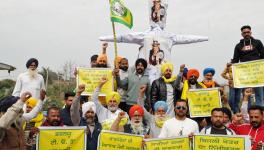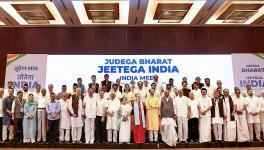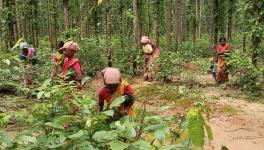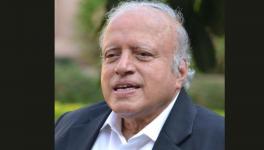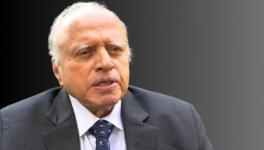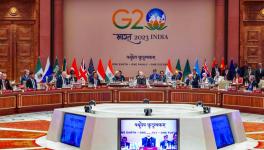Ignore No Scientific View on Covid-19, Pick the Best Options
At a time when the debate on lockdown and extension of lockdown is escalating not just in India but in several other countries, it is useful to examine the opinion of some very senior scientists on this issue.
Dr Sucharit Bhakdi, a highly cited scientist who headed the Institute of Medical Microbiology and Hygiene in Germany, has sent an open letter to Chancellor Angela Merkel of Germany, calling for urgent re-examination of the country’s response to Covid-19. He said that it was difficult to find scientific rationale for the very sweeping measures that have been taken, more in panic than on the basis of studies which firmly establish very high risks. The risk has been inflated by mistakes such as assuming that the cause of death was Covid-19 if Novel Coronavirus is found in a sample taken from a deceased person.
Earlier, he had stated in a more global context that some of the anti-Covid-19 measures are “grotesque, absurd and very dangerous”. The life expectancy of millions is being shortened, he had said, while there was a “horrifying” impact on the world’s economy. “The consequences on medical care are profound. Already services to patients in need are reduced, operations cancelled, practices empty, hospital personnel dwindling,” he said.
Dr Bhakdi is certainly not alone. Many eminent colleagues of his from the scientific and medical community are recording their opposition to the prevailing response of strict lockdowns to combat the spread of Covid-19, the disease caused by the Novel Coronavirus. Their combined voices are attracting growing attention, not just because they are academically accomplished and public spirited, but also because a lot of people sincerely feel that a diversity of views are required if the best policy options are to be adopted by nations and the world.
On 20 March, Dr David Katz, founder-director of the Yale University Prevention Research Centre wrote in the New York Times that he is “deeply concerned that the social, economic and public health consequences of this near total meltdown of normal life—schools and businesses closed, gatherings banned—will be long-lasting and calamitous, possibly graver than the direct toll of the virus itself… The unemployment, impoverishment and despair likely to result will be public health scourges of the first order.”
If such apprehensions are expressed by activists, who have a firm grasp of the reality at the grass-roots level, they are criticised strongly by authorities for being unscientific. Therefore, it is really important that eminent concerned scientists have issued these warnings. Some are also suggesting alternative responses to the challenges posed by the pandemic. Michel T Osterholm, director of the Centre for Infectious Disease Research and Policy at the University of Minnesota wrote in the Washington Post on March 21 that if the effects of shutting down and making people unemployed is taken into account, then “the likely result would be not just depression but a complete breakdown…” The best alternative, he wrote, until natural immunity or a vaccine show up, is probably to let those who are at low risk to face serious symptoms of the disease work, including in the manufacturing sector, while “advising higher risk individuals to protect themselves through physical distancing and ramping up our healthcare capacity as aggressively as possible. With this battle plan we could gradually build up immunity without destroying the financial structure on which our lives are based.”
Similarly, Frank Ulrich Montgomery, a doctor and former president of the German Medical Association has said that he is “not a fan” of lockdowns. Anyone who imposes one, he has said, must say when and how its effects will be reversed, he feels, especially since “we have to assume that the virus will be with us for a long time,” he has said.
This is a question that would be haunting Indian policy-makers too, for there are already demands to revoke the clampdown, which, while controlling the spread of Covid-19, has also brought economic activities to a sudden halt. There are pay cuts on the horizon, and jobs have been lost already, and predictions are of the situation turning more grim if this continues.
In this context, the words of Dr Leonid Eidelman, former President of the World Medical Association, gain special relevance. A complete lockdown would cause more harm than good and will be counterproductive, he has said. If the economy is disrupted then, inevitably, resources for healthcare will also fall and health systems will suffer, not improve, as a result.
A physician specialising in pulmonology and a former chairman of the Parliamentary Assembly of the Council of Europe (PACE), Wolfgang Wodarg has also said “ What is missing just now is a rational way of looking at things. How did you find out this virus was (so) dangerous?”
The reason experts are questioning the response to Covid-19 is that the mortality from other illnesses is far higher than for this virus. For instance, until late 2017, the WHO estimated, seasonal influenza was associated with a total of 2,50,000 to 5,00,000 annual deaths worldwide. Other estimates say the mortality is higher, at 2,90,000 to 6,50,000 deaths, even when accounted for conservatively. Imagine an annual global mortality from influenza of around half a million. Now imagine if these seasonal deaths were played on TV on a daily or hourly basis. That would amount to reporting about over 1,000 deaths a day—more in some months of the year. Now imagine the kind of scare that could be generated from such coverage. This is why there needs to be caution about how public opinion can be manipulated in how a health issue is talked about.
Dr. John Loannidis, a professor of medicine and epidemiology and population health at Stanford University School of Medicine, who has held some very senior positions as well, has said that in the United States alone seasonal influenza kills an estimated 22,000 to 55,000 people, of a total affected population ranging from 36 and 51 million. He put his apprehension on the record on March 17 in STAT News, when he said that if we had not known about a new virus, and had not checked individuals with PCR tests, the number of total deaths due to an ‘influenza-like illness’ would not have seemed unusual at this time in the year. “At most we might have casually noted that flu this year seems to be a bit worse than average,” he said. He has also called the oft-mentioned 3.4% global average fatality rate for Covid-19 “meaningless”, on account of the severe limitations of existing available data. His own estimate says that the fatality rate for the US could likely range from 0.05 and 1%.
Many other scientists have pointed out that the fatality rates for Covid-19 are likely to be lower than the prevailing rates we hear of now. The reason is, as mentioned earlier, the discovery of this virus in the dead, particularly among the elderly who suffered from other serious ailments. As Dr Jason Oke of the University of Oxford has written, “Dying with the disease (association) is not the same as dying from the disease (causation).”
Michel Chossudovsky, a professor emeritus of economics at the University of Ottawa and founder-director of the Centre for Research on Globalization (CRG), who has advised several governments and international organisations, has pointed out in a review of the 2009 H1N1 swine flu pandemic that very exaggerated number of infections and deaths came from powerful organisations and individuals, promoting the use of millions of vaccines manufactured by multinational companies. Millions of vaccines had to be destroyed as they ended up not being necessary. Senior scientists are pointing out that this pandemic has led to a huge misallocation of scarce health funds.
Chossudovsky has also drawn attention to the growing power of vaccine-producing multinationals and global networks. He has also drawn attention to the ID2020 Agenda, described by Peter Koenig as “an electronic program that uses generalized vaccination as a platform for digital identity.” Chossudovsky adds, “ID2020...if applied, would roll out the contours of what some analysts have described as a Global Police State encompassing through vaccination the personal details of several billion people worldwide.”
While vaccination plays a critical health role, any attempts to concentrate vaccination in the hands of very big business interests would open up this sector to manipulation by them, and this should be resisted. Health activists have been pointing this out for several years.
CRG researchers have pointed out a simulation of a Coronavirus epidemic organised in October 2019 in Baltimore, which invoked a frightfully large number of deaths, until a vaccine appears. Speaking of the future, many researchers say that instead of placing our fate and health in the hands of highly-centralised big business interests, we should rationally examine a range of treatments being suggested and tested by independent scientists who are free of the domination of big business interests. Not just medicine, but vaccine development is also possible outside the confines of big business if developing countries pool their scientific talent and resources and work on a no-profit, no-patent, basis while freely disseminating knowledge to benefit all humanity, including the poorest.
On critical health issues like the Covid-19 crisis, India and the world should be careful not to get manipulated by big business. For this reason, it is essential to protect the independence of scientists, other experts as well as communicators. It is very harmful for democracy and to the search for the best policy options if dissenting voices and divergences, particularly those opposing manipulation by corporate interests, are stifled.
As the world grapples with Covid-19 and the debate on lockdowns rages on, it is clear that a balanced response—combining essential medical precautions with the need to protect lives, livelihoods and food security—is what we need. Scientists are opposed to prolonged draconian shut-downs and experts are saying these could prove counterproductive. They must be heard out patiently.
The writer is an independent journalist and author, convener of Save the Earth Now Campaign and author of Planet in Peril, Protecting Earth for Children and Man Over Machine. The views are personal.
Get the latest reports & analysis with people's perspective on Protests, movements & deep analytical videos, discussions of the current affairs in your Telegram app. Subscribe to NewsClick's Telegram channel & get Real-Time updates on stories, as they get published on our website.









